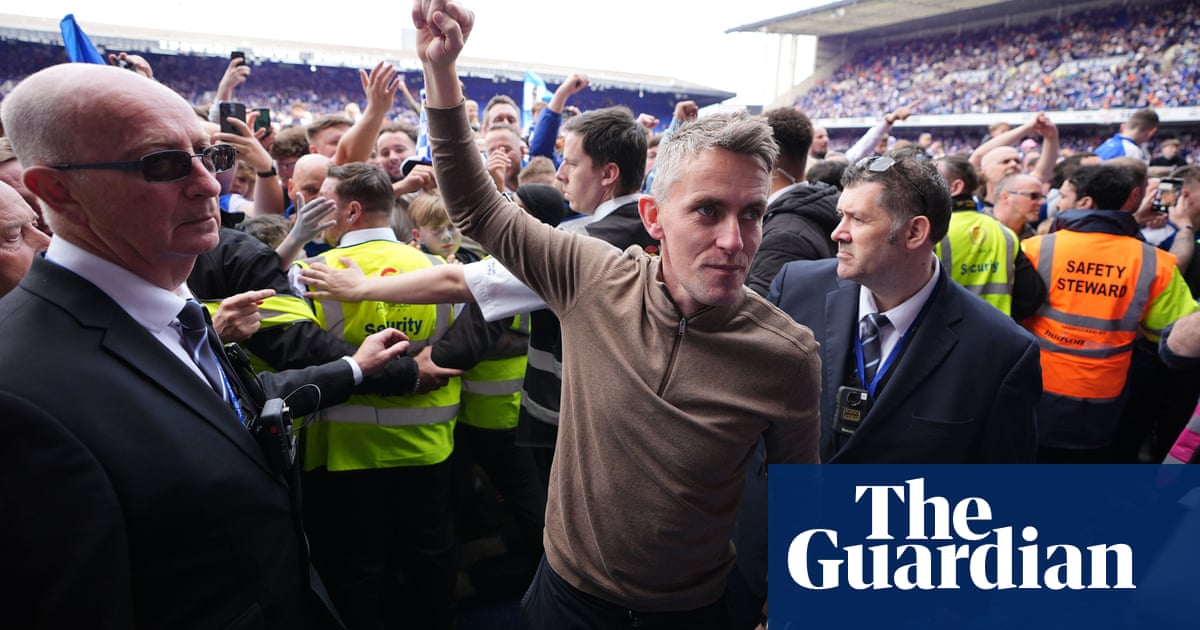
The behind-the-scenes documentaries so beloved of modern times are not known for their rough edges but, for Granit Xhaka, that was part of the point. He allowed the cameras into his home for the Amazon series that followed Arsenal last season and if it humanised him beyond the spiky, sometimes rash, often divisive but frequently highly effective character seen on the pitch then the film had done its work.
“For me it is fine because I have nothing to hide,” he says. “I am Granit here and the same at home. Only on the football pitch do I have a different mask: people have to accept that.”
This is Xhaka’s seventh season at Arsenal and it has been a stint that defies ready interpretation. He began it as first choice in midfield, even though most of Mikel Arteta’s side has changed virtually beyond recognition in the past two years. Only Rob Holding and Héctor Bellerín, neither of whom is particularly close to regular first-team football, remain from Xhaka’s first campaign in 2016-17. Against most odds, given he was halfway out of the door when Arteta arrived, Xhaka has outlasted more celebrated names and it is a powerful argument for the idea that supporters’ eyes do not generally see the whole story.
Has he changed since that infamous run-in with the Emirates crowd during the match against Crystal Palace in October 2019, which led him to the brink of joining Hertha Berlin that winter? “I think I was always a good person, but different,” says the 29-year-old. “A lot of people ask me: ‘Was last season the best Granit since you were here?’ But I never had problems in this club, not with teammates, not with people in the building. It was only this moment with the Palace game, everything else was fine with the club.
“People only see the moment they were disappointed, and they forgot the other five years. But this is part of the business, people don’t see the rest, they see only the moment and they give you a number whether good or bad.”
This perhaps glosses over some of the missteps that coloured Xhaka’s early work at Arsenal and, in the form of aberrations like a costly red card against Burnley a year later, continued to seep in afterwards. Yet when a player is consistently appreciated by managers it is a clear sign their pros outweigh the cons and one that should be noted. Xhaka had told Arteta: “I’m gone, I can’t wear the shirt any more” on their first meeting in December 2019 and was only persuaded to stay after the Spaniard implored him to hold on for another six months.
He has survived several rounds of culls that have seen Mesut Özil and Pierre-Emerick Aubameyang among those to leave, and surmounted a further wobble of his own last year when he signed a contract extension after Roma failed to strike a deal for his services. Arteta trusts him, even in a team that has evolved to play the kind of fast, fluid football with which Xhaka was expected to struggle, and nobody inside the dressing room would talk down his influence on the squad.
Xhaka thinks people would feel more sympathetic to footballers, and steer away from lazy tropes, if they could look beneath the bonnet more often. When he played for Borussia Mönchengladbach, fans would come in numbers to watch the team train: there was no suggestion of a hiding place and he laments that it is not part of the culture in England.
“The people who don’t see us in training don’t see how hard we are working,” he says. “They see us only in the 90 minutes. Everyone has a good and bad day. That is why I spoke with the club about it: ‘Why can’t we bring the fans, maybe once a week, so they can see us how we train?’. It’s not like we are coming here to waste our time and after that we don’t care about the 90 minutes.
“We care more than people think. Me and Aaron [Ramsdale] for example can’t sleep after the game when we lose, but no one can see that. It makes me very disappointed and very sad that, after that, people start to say: ‘You didn’t give everything for the club.’ This is bullshit. But it’s so difficult in England to bring the people to the training ground. In Germany it is different: you have two, three, four thousand people and they come every day.”
Anyone who found their way to the London Colney touchlines would see a coach Xhaka has described, good-naturedly, as “a freak”. Arteta has opened his eyes. “I’ve had many coaches but Mikel is maybe one of the top ones because of how he explains, how he prepares,” he says. “It’s not normal.
“We know exactly what we have to do. Not only the first step but the second and third after, with the ball and without the ball. How we prepare ourselves is amazing, I never saw something like this before.”
The sense is that Arsenal are better set for a return to the top four than at any point since the season they dropped out of the Champions League places, which happened to be Xhaka’s first in north London and sowed the seeds of the discontent from which he has clawed back. They host Leicester on Saturday on the back of an opening-night win at Crystal Palace and he believes the fruit of Arteta’s labours will soon, like his own domestic life, be plain to see.
“We are building something very special here,” he says. “It’s a shame I only have two years more on my contract. Let’s see what happens after two years but I’m seeing a big, big future for this club.”












